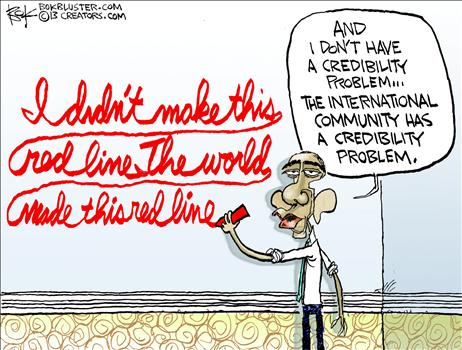Over the past decade, U.S. foreign policy in the Middle East has become a focal point in American politics, shaping perceptions of leadership and strength on the world stage. Under the Obama and Biden administrations, approaches to Iran, Syria, and Israel have sparked intense debate. For many Americans, these administrations’ perceived indecisiveness—particularly in dealing with Iran’s growing influence and the Syrian conflict—signaled a lack of leadership in a volatile region. This perceived weakness played a significant role in Donald Trump’s electoral victories in both 2016 and 2024, as he positioned himself as a leader willing to take a hard line in a region plagued by ongoing conflict. By examining how these policies unfolded and influenced public sentiment, we can better understand why voters turned to Trump as a seemingly stronger alternative.

- Obama’s Leadership in Syria and Iran: During the Syrian civil war, Obama set “red lines” concerning the use of chemical weapons, promising intervention if they were crossed. However, despite violations, he hesitated to act decisively, leading to perceptions of weak U.S. leadership. Iran, and its ally Hezbollah, filled the power vacuum in Syria, strengthening their foothold. This perceived indecisiveness may have cost the Democrats support among voters who wanted more assertive action.
- The Iran Nuclear Deal (JCPOA): Obama’s 2015 Iran Nuclear Deal, aimed at curbing Iran’s nuclear ambitions, was seen by some as a concession rather than a measure of control. Critics argued it empowered Iran financially, fueling its regional influence. Trump’s firm stance in exiting the JCPOA appealed to voters who saw Iran’s rising influence in the Middle East as a security threat. His “maximum pressure” campaign reinforced his image as someone willing to confront Iran, a key issue where Obama appeared to many as cautious.
- Biden’s Challenges with Israel and Iran-Backed Groups: After the Hamas attack on Israel in 2024, Biden publicly supported Israel and sent substantial U.S. military aid. But his calls for a ceasefire went unheeded, leading some to see him as ineffective. Additionally, despite his staunch pro-Israel stance, critics argued he struggled to influence decisions in the region, contributing to a perception of weak leadership. This may have made it harder for the Biden administration to appear strong on Middle Eastern policy, fueling support for Trump as a leader who could be more assertive.
- Netanyahu’s Reactions: The fact that Israeli Prime Minister Netanyahu congratulated Trump and was perceived as warmer toward him than Biden underscores how leaders in the Middle East might have seen Trump as a more reliable or firm ally. This foreign endorsement can subtly influence American voters, especially those invested in Middle Eastern stability, who might see Trump’s approach as more aligned with their views.
- Historical Pattern: Trump’s appeal appears to align with voters who are frustrated by perceived Democratic inaction in regions like the Middle East. Following Obama, who was blamed by some for underestimating the power of Iran and Hezbollah, and then Biden, who also faced difficulty in influencing Israel and Middle Eastern allies, Trump’s direct and often aggressive approach to foreign policy could seem more attractive. Voters might see him as a leader who is willing to challenge adversaries directly, rather than relying on diplomatic “red lines” and calls for ceasefires that seem to yield limited results.
- Blame on Democratic Leaders: When Hillary Clinton lost to Trump in 2016, Obama’s foreign policy record, particularly his dealings with Iran and Syria, was cited as a reason. Similarly, Biden’s difficulties in the Middle East are now seen by some as contributing factors to Kamala Harris’s hypothetical loss, perpetuating a cycle of Democratic leaders being critiqued for perceived leniency or indecisiveness abroad.

In essence, this analysis suggests that Trump’s perceived strengths on Middle Eastern issues might have stemmed from voters seeking a strong, assertive leader who could navigate complex conflicts without appearing to concede ground. This perception could be what Democrats are reckoning with, as Biden’s support for Israel and his inability to influence outcomes has left a void that Trump effectively fills in the public eye.


Leave a Reply
You must be logged in to post a comment.